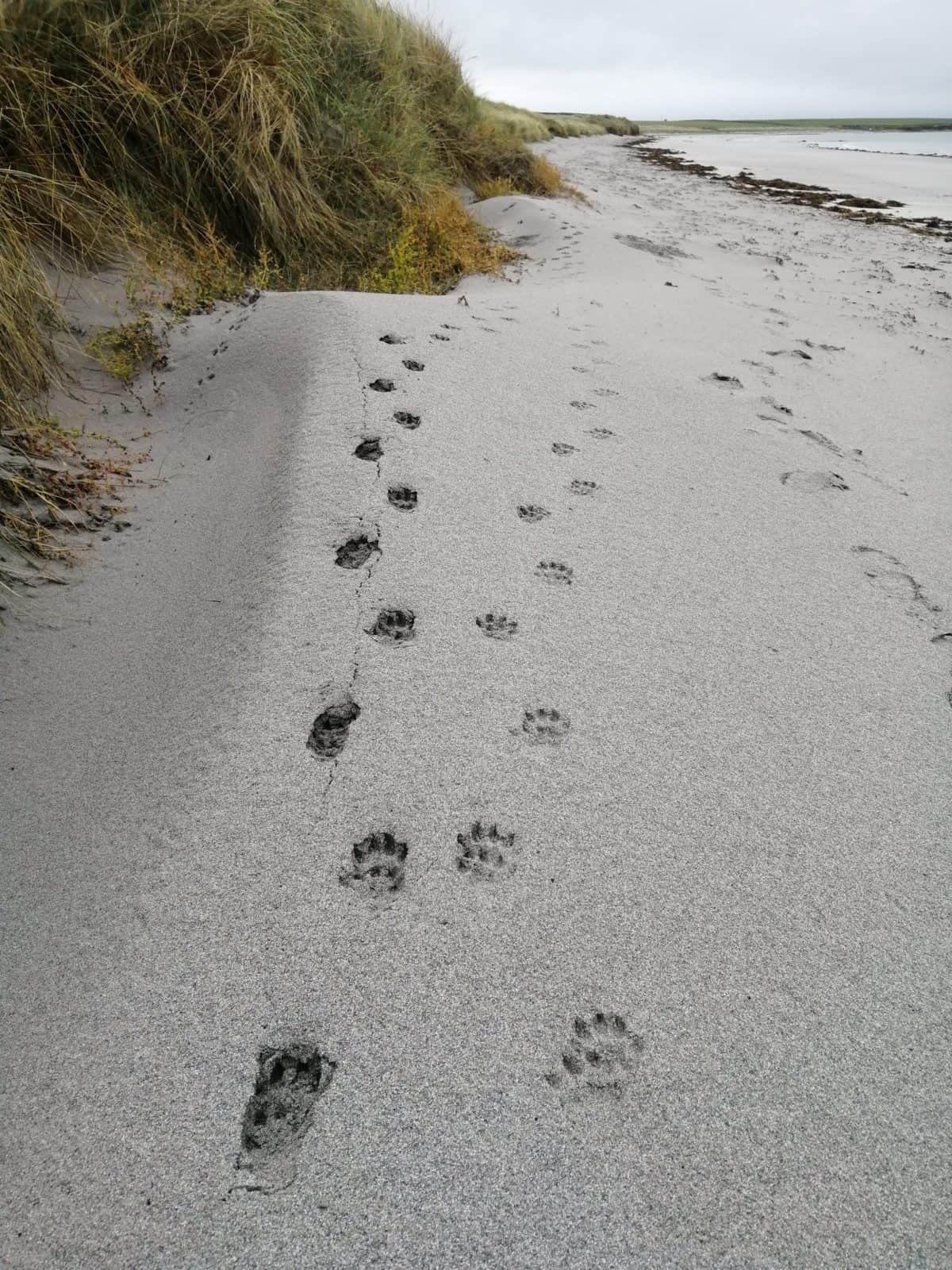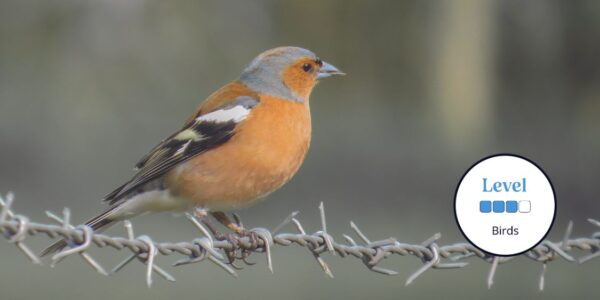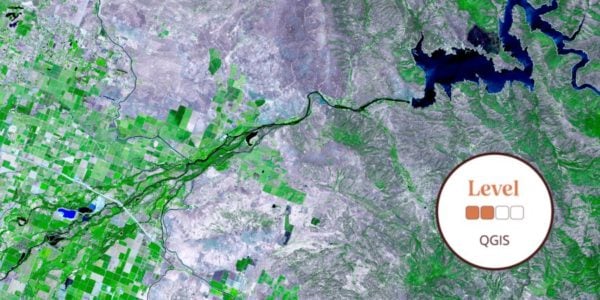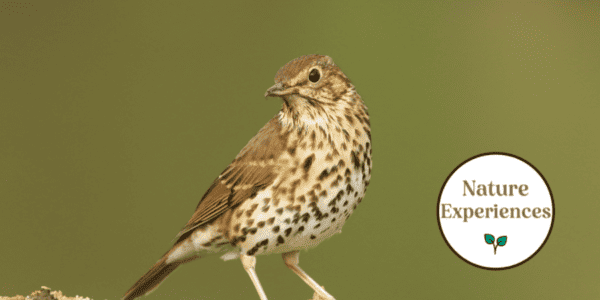This beginner course will introduce you to the ancient art of wildlife tracking. Tracking involves a range of skills. This course will teach you to follow clues, work out what the animal was doing and when, and maybe even find the animal itself.
Tracking is a great way for nature enthusiasts and early conservationists to hone their ability to observe details around them and to build their knowledge of wildlife, specifically their movement and feeding ecology.
What will be covered during this course?
- Introduction to mammal and bird foot morphology, how that relates to the tracks we find in the field and helps us identify the trackmaker.
- Introduction to commonly found wildlife signs, how to identify these and what they tell us about the animals that left them.
- An overview of some of the key techniques for identifying and interpreting tracks and signs including master listing.
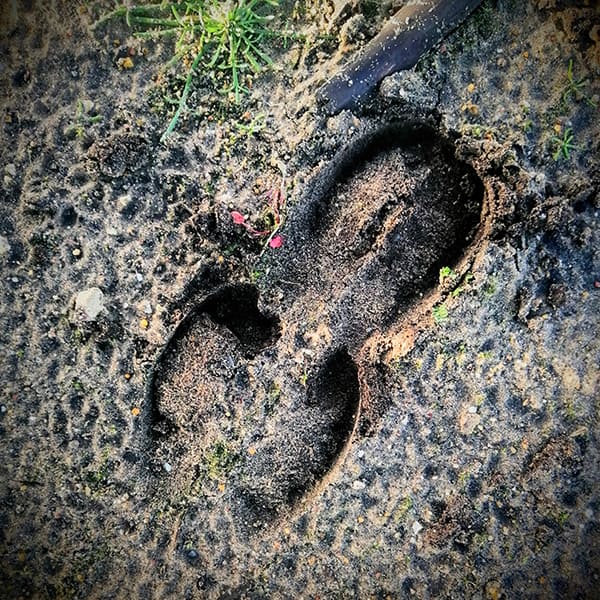
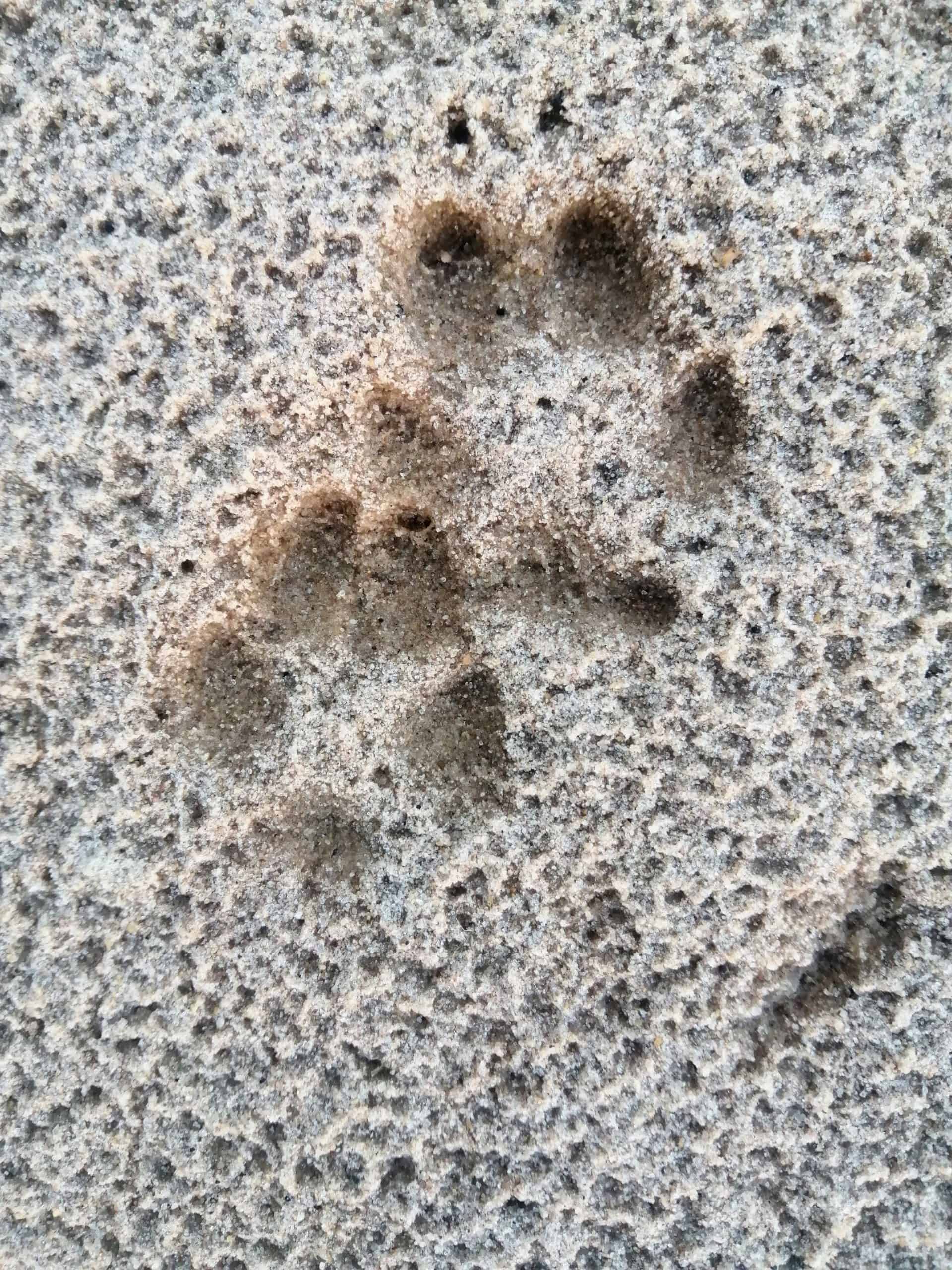
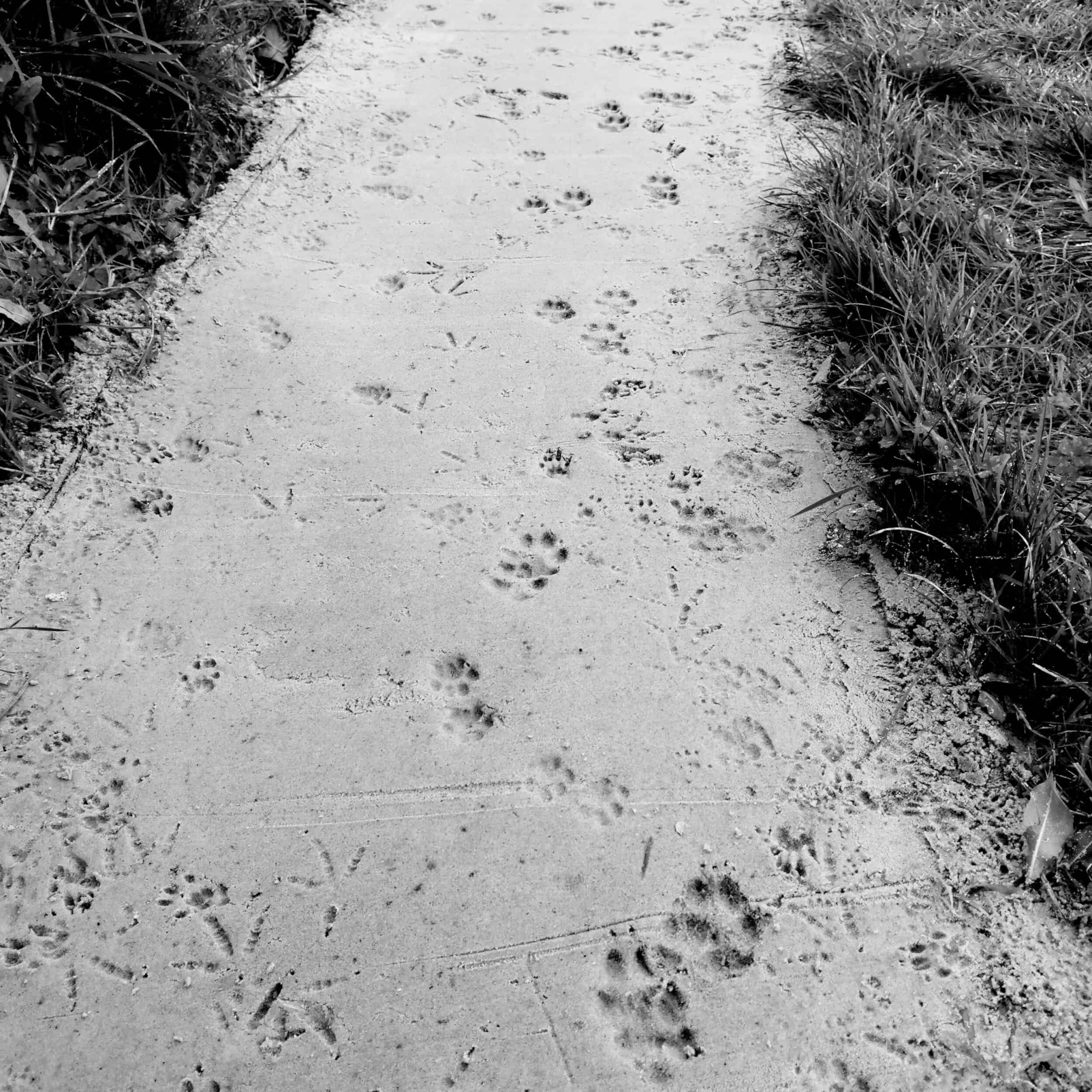
Images by David Wege
Read More
This beginner course is a great place to start for those looking to improve their ability to identify a range of wildlife tracks and signs. You will learn skills to confidently identify a variety of mammal and bird activity including the physical appearance and ID features of tracks, feeding signs, homes, and droppings. We will explore the outdoors to find and discuss examples of tracks and signs, leaving you with a solid introduction to the world of tracking. Be inspired and engaged by the expertise of our specialist tutor and enjoy being surrounded by like-minded individuals who share your interests.
By the end of the course, you will be able to:
- Describe the basic types of tracks and signs and identify key features
- Identify examples of specific animals from their tracks and signs
- Recognise a variety of tracks and signs in their natural environments and what they mean
- Share this knowledge with friends, family, and fellow volunteers.
PLEASE NOTE the course fee is for tuition only. There is no accommodation provided with this course.
Who Should Attend? – Nature enthusiasts, Students, Early career ecologists, Citizen scientists, Volunteer surveyors
Knowledge Level – Beginner. Level descriptors can be found on the following web-page: Framework and Course Level Descriptors
Prior Knowledge – No prior knowledge is required, though those with previous experience would still benefit as the tutor is open to answering a range of questions at different levels.
Please email [email protected] if you have any questions.
About the Tutor
This course is delivered by more than one expert tutor. Your tutor will depend on the location of the course you book.
David Wege
David helps teach nature tracking with Woodcraft School Ltd in Sussex. He has done this for the last 7 years, alongside a 30-year career in international biodiversity conservation with BirdLife International. David has now left the office behind to focus on reviving the art of tracking – an art that has long been lost in the UK, but which provides endless opportunities to connect with nature, survey and monitor wildlife and increase our understanding, appreciation and knowledge of the animals around us. David is a life-long, passionate birdwatcher, wildlife photographer and all-round naturalist.
Dan Puplett
Dan Puplett is a naturalist, conservationist and environmental educator. He is a certified tracker and teaches a range of naturalist skills to people of all ages. Dan is also the author of the Field Studies Council Guide to British Bird Tracks and Sign and the new Field Studies Council Guide to Mammal Tracks and Signs.
Sam Devine-Turner
Sam, of Scruff Stuff, is passionate about offering opportunities for people to connect with nature. She encourages and enables people to notice and interpret the clues left behind by wildlife that are all around us, waiting to be discovered.
Sarah Towle
With a mixed background in conservation, animal behaviour and even wildlife art, Sarah is a qualified teacher in further and higher education and has taught animal and outdoor based learning to wide and varied audiences from primary school through to university. Sarah’s passion for the natural world is lifelong with a specialist interest in UK wildlife and conservation, and can often be found walking the moors and coastland of North Wales with her two collies and a pocket full of feathers, bones or interesting rocks. Sarah has spent the last 12 years developing a wide skill set to deliver fun and engaging learning experiences that are accessible to all ages and abilities.
Morag Boyd
Morag Boyd is a countryside professional with 30 years experience working in a range of countryside and conservation professions. In a varied career, she has worked in a variety of roles including countryside ranger in various locations, lecturer in countryside management for Elmwood College in Fife, conservation shepherd for the Scottish Wildlife Trust and now she combines a contract with Scottish Badgers, recruiting and training volunteers for the national Get Sett Scottish Badger Survey with freelance work training teachers to take learning outdoors for Learning Through Landscapes. She also runs her own outdoor nature education business, working with schools and community groups to get children outdoors and learning about nature.
Morag has a broad knowledge of many different aspects of ecology and conservation, with particular interests in badgers, of course, trees and woodland management and botany.
Dr Jackie Symmons
Dr Jackie Symmons is an experienced freelance ecologist and conservation land management adviser from Mid Wales. She has an extensive background in delivering conservation field research and training from wild deer impacts to marine and terrestrial environment habitat surveys. She is also currently working in the area of natural resource resilience and climate change mitigation.
Example Timetable
Timings of this course vary between locations, so please carefully check the times on the course run (the section where you can add the course to your basket towards the bottom of this page).
There will be a lunch break during the day, the length of the break will vary depending on course location. Lunch is not included so please bring your own food. Refreshments (tea and coffee) will be provided.
What's Included
The course has been carefully created by expert tutors and educators to help you continue to build and develop your knowledge and apply it within the field surrounded by like-minded individuals.
The course includes:
- Classroom learning covering the theory of the species
- Field excursions to apply new knowledge
- Expert tuition for which the Field Studies Council is renowned
- Clear objectives and progression
- Refreshments (tea and coffee)
You can rest assured that the absolute best content from an expert in environmental education will be provided. In choosing a Field Studies Council course, you will be joining thousands of people who learn with us each year.
Reviews
-
★★★★☆
I loved being in such a knowledgeable and keen group from a wide range of backgrounds.
-
★★★★☆
It was hands on, along with useful classroom back up
Bursaries and Subsidies
Student Discount
This course is eligible for a student discount. If you are a current student, please use discount code BioStudent20 at checkout for 20% off all Biodiversity courses.
Natural History Bursaries
There are a number of natural history bursaries available to help with the cost of your course. To find out if you and your chosen course are eligible, read more here.
Before You Attend
What to Bring:
- Notebook and pencil
- Camera to capture images
- Packed lunch and all refreshments for the day
- Sensible footwear and clothing for being outdoors
Recommended Publications:
When you book this course, you will receive a discount code for the Field Studies Council recommended guides below. You may wish to purchase the following Field Studies Council publications available in our shop to enhance your experience:
- Guide to British Bird Tracks & Signs
- Tracks & Signs of Mammals of Britain & Ireland
- Guide to the Land Mammals of Britain
- Guide to Owls and Owl Pellets
There will be a member of staff with first aid training and access to a first aid kit on site. If you have special medical or access requirements, please let us know as soon as possible so we can plan the course.
Opportunities to attend this course
-
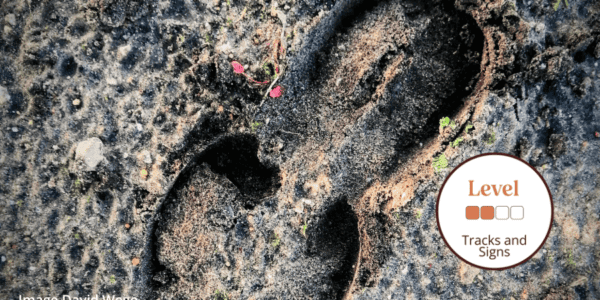
Sat 04, May 2024 10:00 - 17:00
The Centre is unable to offer accommodation with this course, please book local accommodation if you require overnight stays and ensure you take out the appropriate insurance. Car park information can be found here.
-

Sat 14, September 2024 10:00 - 17:00
The venue is unable to offer accommodation with this course, please book local accommodation if you require overnight stays and ensure you take out the appropriate insurance.
-

Mon 07, October 2024 10:00 - 17:00
The centre is unable to offer accommodation with this course, please book local accommodation if you require overnight stays and ensure you take out the appropriate insurance. Please meet at the Bute Park visitor centre, there are instructions of how to get there on their website. There is no car park at Bute Park - nearest pay and display: Castle Mews, Sophia Gardens and North Road Car Park.
-

Sun 13, October 2024 10:00 - 16:30
Further information on The Falkland Estate can be found here. Please note: course times are 10am - 4:30pm, with a 30 minute lunch break. The venue is unable to offer accommodation with this course, please book local accommodation if you require overnight stays and ensure you take out the appropriate insurance.
No current dates for this course? Click here to view all the upcoming Natural History courses.
Progress Your Learning
This is a training course from the Field Studies Council, delivered by expert tutors with an approachable learning style. After attending this course, you may like to progress your learning with further relevant courses or branch out into other areas of natural history. The Field Studies Council offers both online and in-person courses, so you can choose the learning style that suits you best.
The course gives you the opportunity to immerse yourself in a new subject and acquire novel skills. Our online portal gives you time to study at your own pace and fit the lessons around your own schedule.
If you have any questions about our online courses please check our Frequently Asked Questions or email [email protected].
Group Bookings Made Easy
If you have a group of 10 or more individuals wanting to complete one of our courses, our team are available to discuss your options – from discounts to private team courses. Find out more!
You can rest assured that the absolute best content from an expert in environmental education will be at your fingertips. In choosing a Field Studies Council course, you will be joining thousands of people who learn with us each year.

